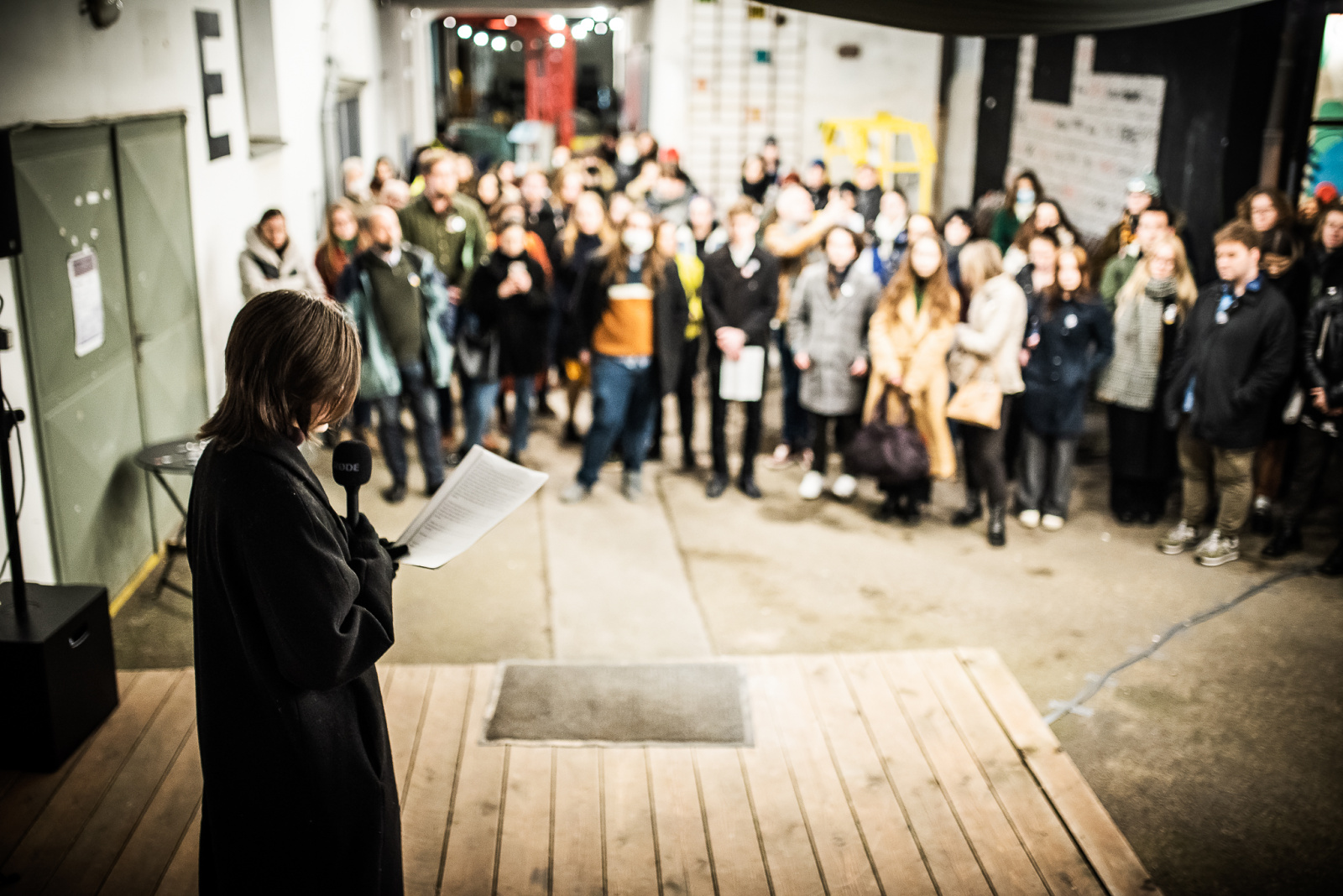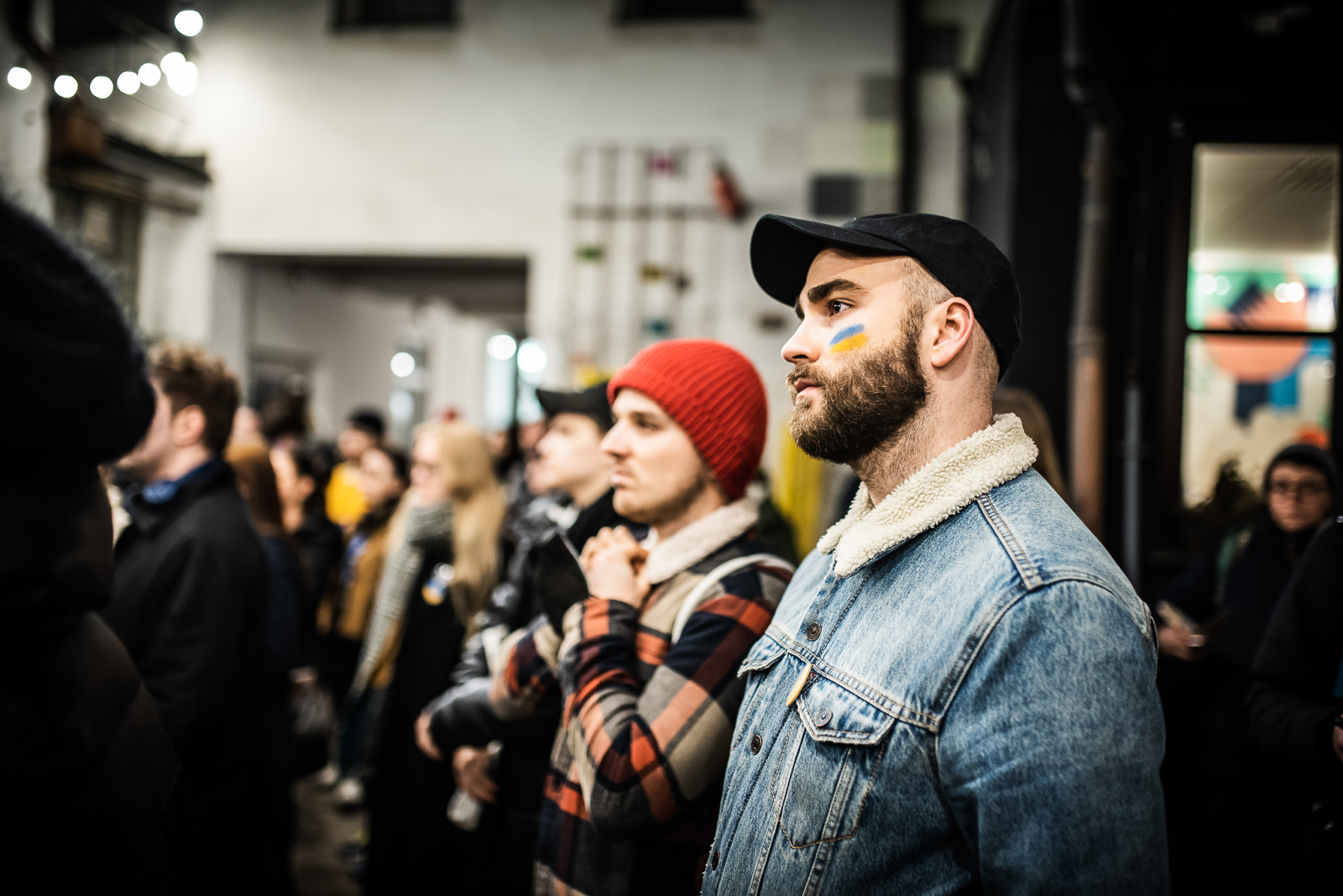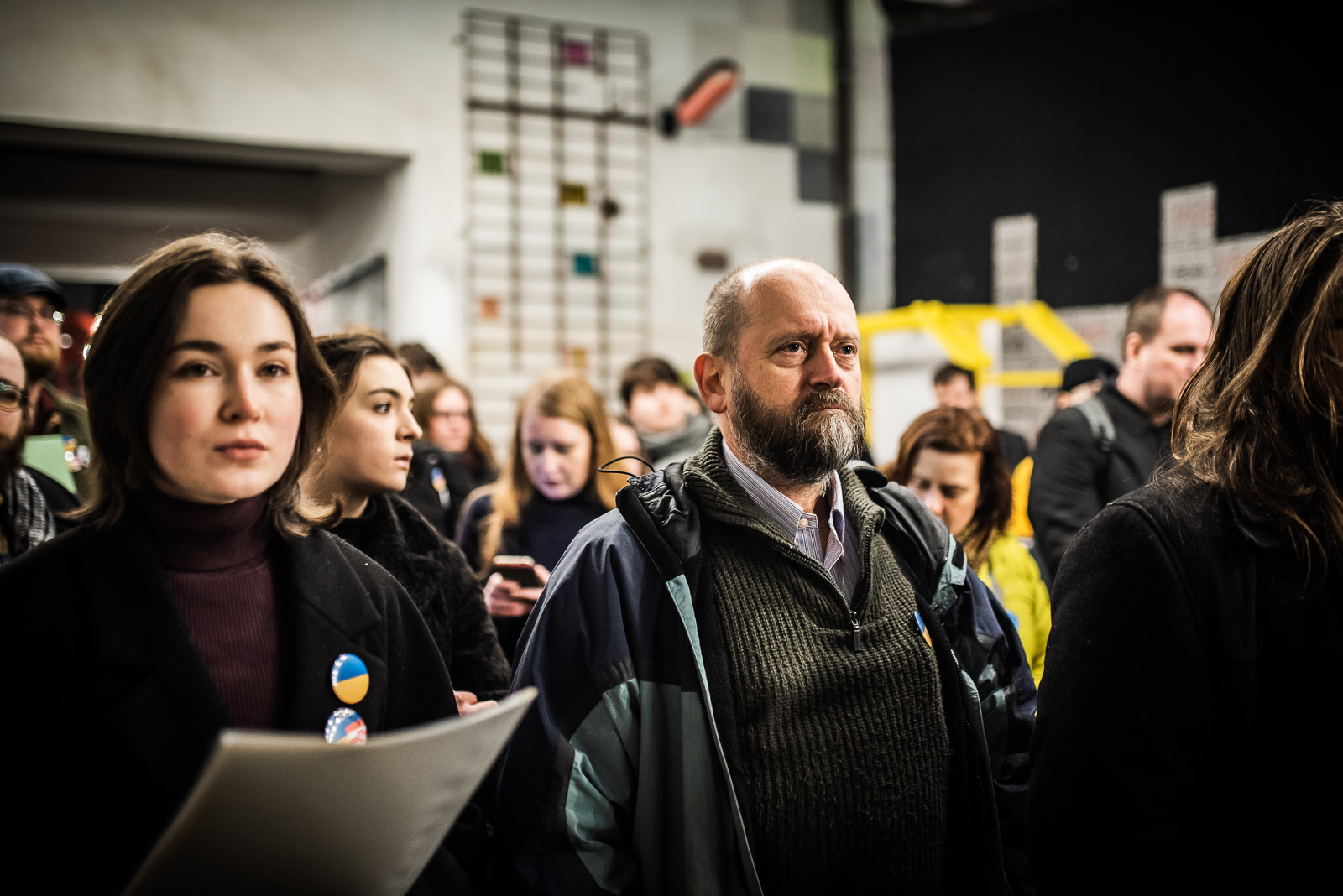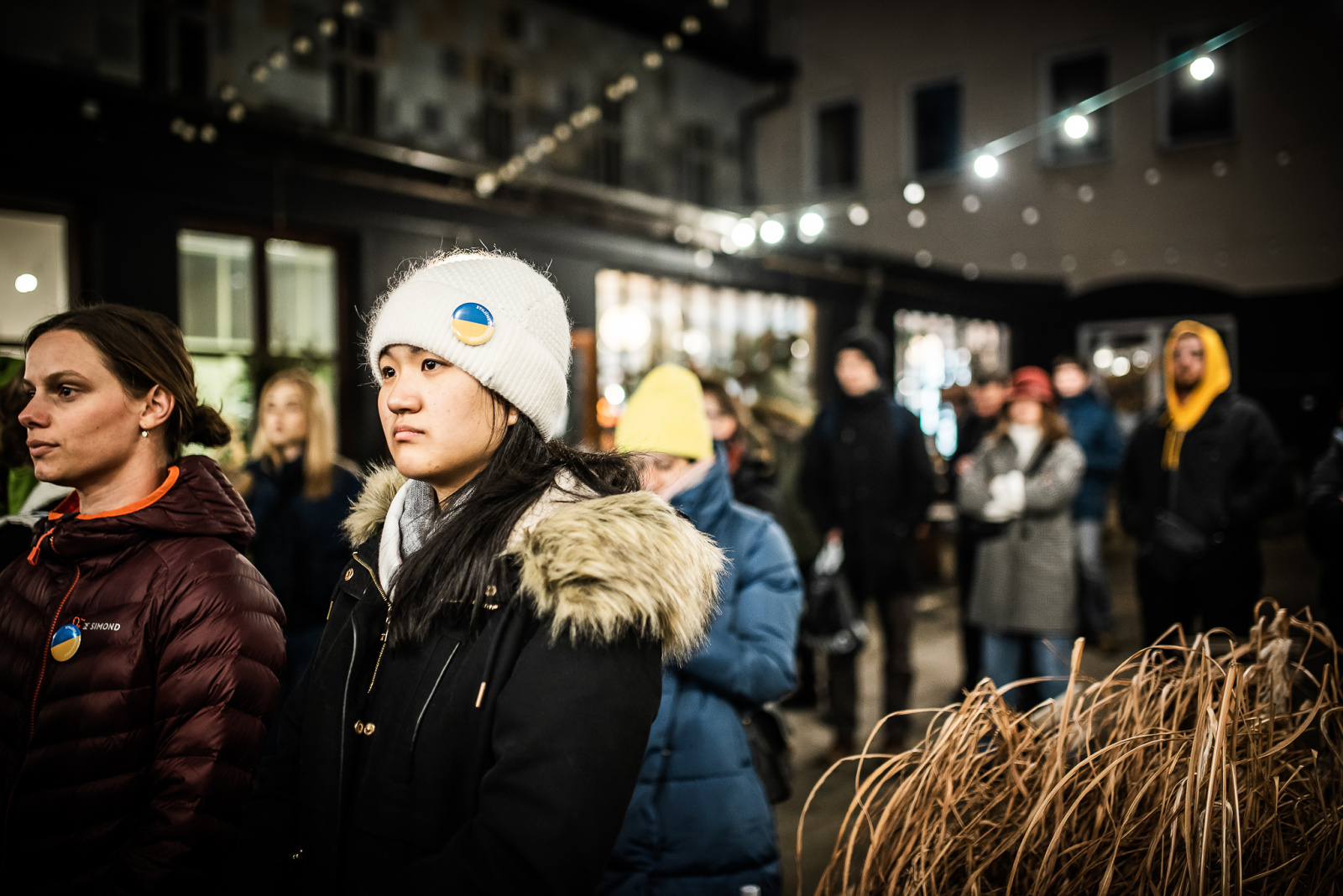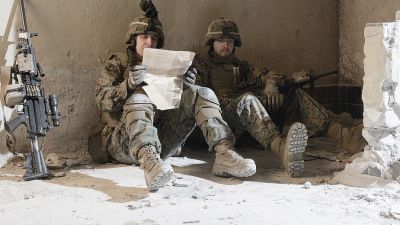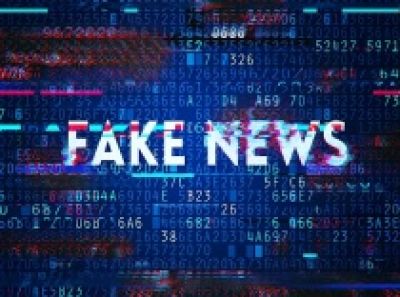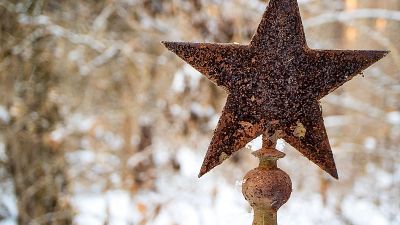“Our freedom is being fought for here too,” was the message sent via the internet by the Faculty of Arts of Dr. Radomyr Mokryk in Lviv, Ukraine. He was one of the panellists at This is our world, not your battlefield!, a student happening held at Kampus Hybernská on Friday. The meeting took place a day after Vladimir Putin ordered Russian military forces to invade Ukraine.
It had been quickly organised by students and student associations of Charles University, to express support not only for Ukraine in its struggle for freedom, but also for Belarusians and Russians who do not identify with the autocratic regimes in their own countries.
Dr. Mokryk had arrived in Ukraine a few days before the war broke out: he described current events in Lviv, in western Ukraine, from where he joined the discussion via the Internet. “Here in the city there are big queues not only in front of ATMs, but also in front of gun shops and depots. Kyiv is determined to defend itself. I see it here among my friends who are voluntarily going there to defend the city.”
Michal Zima, Charles University’s new chancellor also took the floor, expressing solidarity and outlining support that CU so far prepared for students, academics and non-academic staff from Ukraine.
“We as a university must clearly stand up for the fact that there is no such thing as collective guilt in this conflict. Russian and Belarusian students are not automatically supporters of President Vladimir Putin. They are people who want to study, do science and maybe even live here permanently. We have to stand up for them and we have to help them even in the current situation where there has been a blanket freeze on visa entry,” he said. The chancellor was reacting to one of the sanction measures announced by the Czech government.
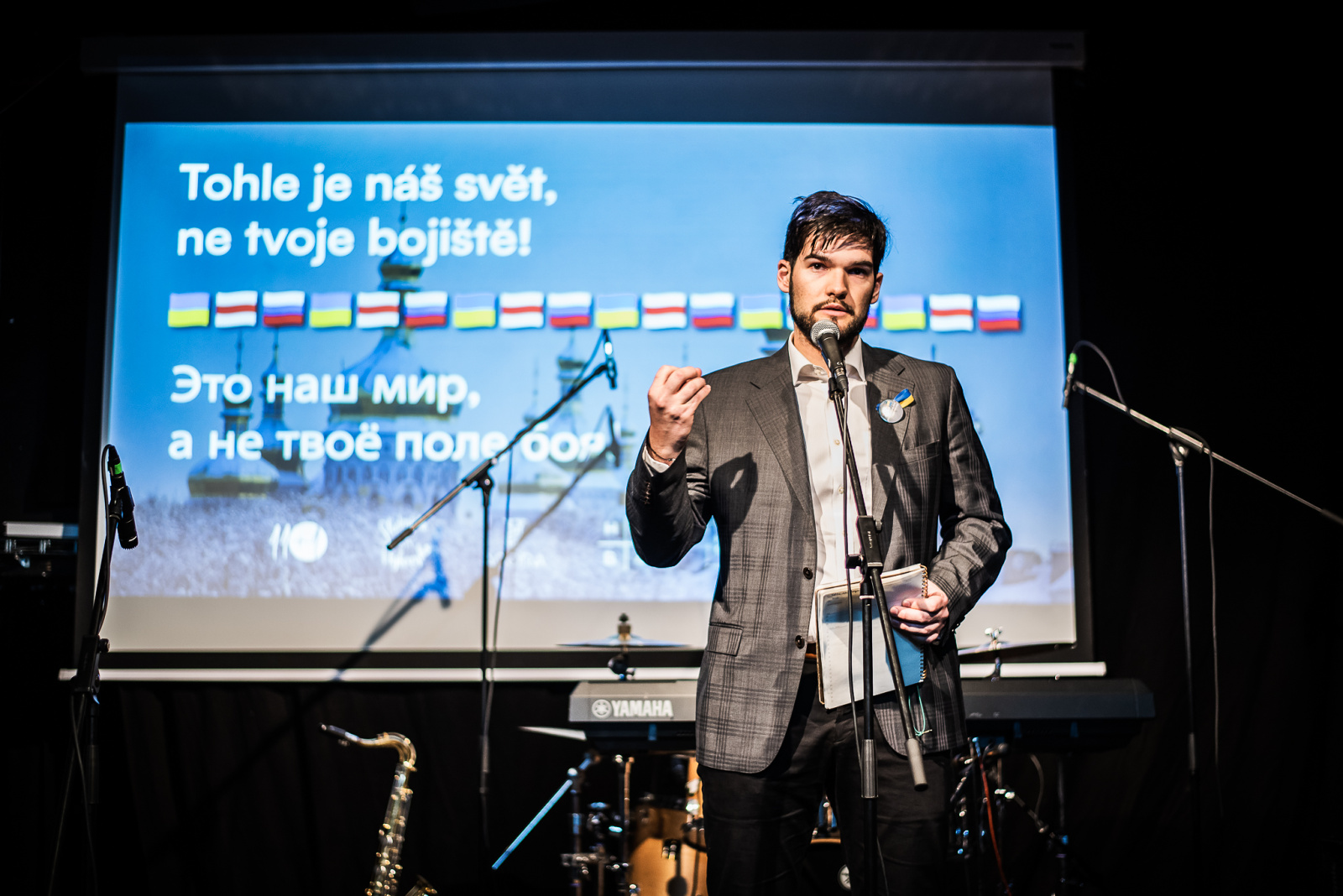
Chancellor Michal Zima conveys greetings from Charles University Rector Milena Králíčková - unable to attend the event in person due to
negotiations to help Ukrainian students, academics, and their families.
The chairman of the Council of Higher Education Institutions and a Vice-Rector at the University of Chemistry and Technology Prague, Milan Pospíšil, also spoke, describing how quickly schools and academia had united in efforts to help Ukraine. Representatives of various student associations and initiatives also took turns at the mic to express solidarity and support. All urged the participants to help as much as possible after Ukraine witnessed the start of a massive influx by Russian troops on 24 February that began fighting that has not subsided since. Demonstrations in support of Ukraine have since been held in major cities worldwide - including Prague - calling on Russian forces to end the assault, an unprovoked invasion of a sovereign country, immediately.
At the event on Friday, Vojtěch Šimák from the Association of History Students at the Faculty of Arts at Charles University continued: “Although as students we are not able to speed up the summits of governments, the European Union and NATO, we stand together in support the leaders and people of Ukraine in their struggle against Putin's unprovoked aggression and imperialist policies. As students, we stand with our fellow Ukrainian, Belarusian and Russian students, whether they are studying in the Czech Republic or elsewhere,” he said.
The causes and possible course of the Ukrainian war, as well as the consequences of the invasion of Ukraine by Putin's Russia, were then discussed by the aforementioned Dr. Mokryk from the Institute of East European Studies at the Faculty of Arts, Dr. Michal Smetana from the Department of Security Studies at the Faculty of Social Sciences, and Associate Professor Petr Hlaváček from the Research Group for the History of European Thought at Collegium Europaeum – a joint institute of the Faculty of Arts and the Academy of Sciences of the Czech Republic. They agreed that the situation was extremely serious not only for Ukraine but for the rest of the world. Few attendees were convinced that even the harshest of economic sanctions will likely slow or stop Putin's war machine. Russia’s nuclear weapons, which Vladimir Putin mentioned several times by the end of this week in a bid to further intimidate opponents, were an additional sobering factor that came up in discussion on Friday - and in analysis since.
Charles University has launched related webpages providing information, ways to help as well as helplines for students and others in need because of the current conflict.


